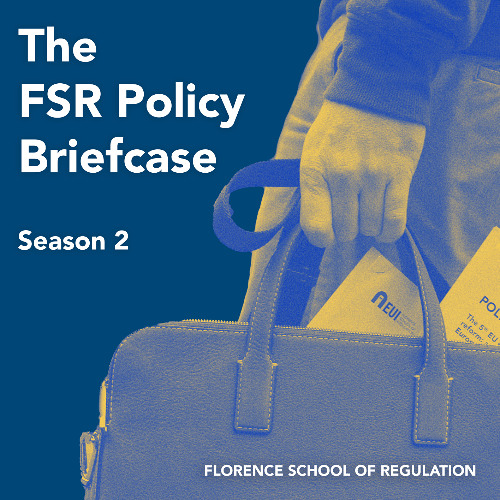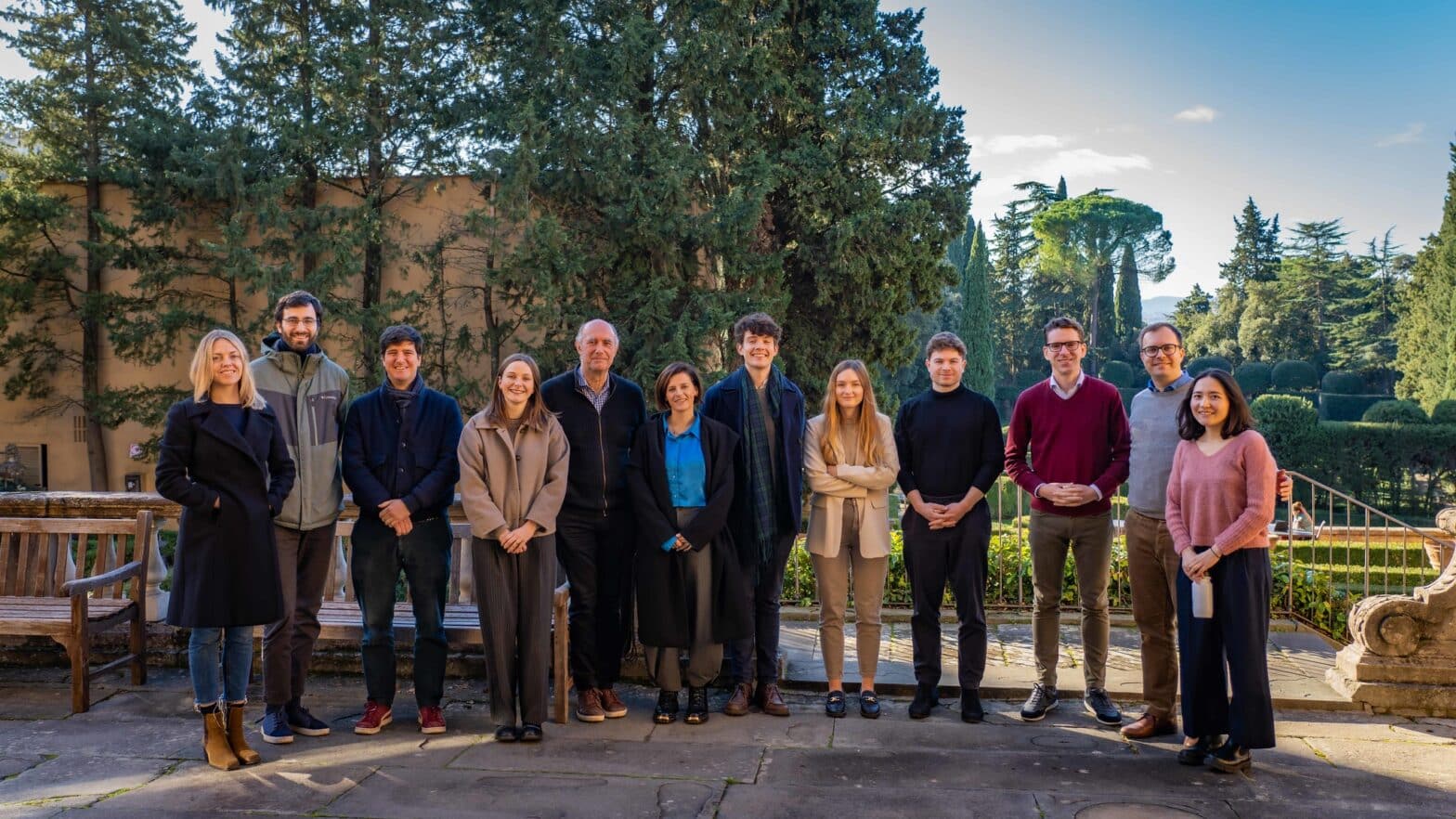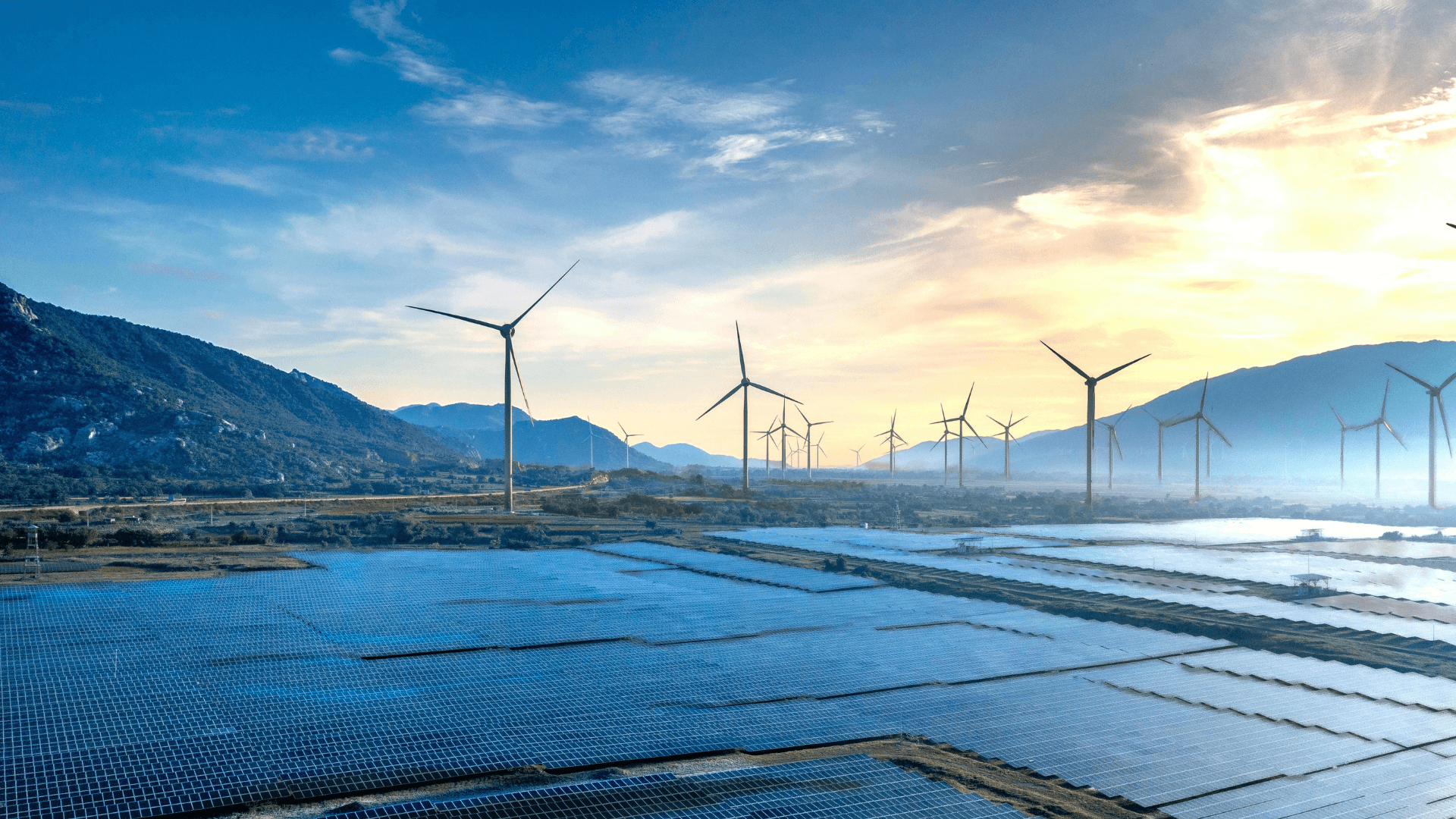Overview of Recent Energy Case Law from the CJEU: highlights from the event
Highlights from our 2022 event: An Overview of Recent Energy Case Law from the CJEU

On Friday, 2 December 2022, the FSR hosted the most recent edition of its popular biannual update on recent energy case law at the Court of Justice of the European Union (CJEU). The briefing was conducted by Leigh Hancher (Director, Energy Union Law Area, FSR; Tilburg University) and Adrien de Hauteclocque (Head of Cabinet of the President of the General Court; Senior Advisor, Loyola de Palacio Chair & FSR).
Case C-46/21 P – ACER v Aquind (Opinion of Advocate General Campos Sánchez-Bordona)
Dr de Hauteclocque began with an update on the Aquind saga, a series of cases concerning the proposed HVDC submarine cable interconnector between the United Kingdom and France. In Case T-735/18 – Aquind v ACER, the General Court had annulled a decision of ACER’s Board of Appeal, inter alia because the Board had only carried out a limited review of a contested ACER decision, confined to manifest errors of assessment by the Agency. In his Opinion on the appeal of the General Court’s decision to the Court of Justice, Advocate General Campos Sánchez-Bordona agreed with the General Court. Dr de Hauteclocque stated that the judgment by the Court of Justice might also be important in the broader context of the evolution of the architecture at the quasi-judicial and at the judicial level in the European Union.
Case T-631/19 – BnetzA v ACER
The next case examined by Dr de Hauteclocque also concerned an ACER decision, that on the Common Coordinated Capacity Calculation Methodology for Western Europe. In this case, National Regulatory Authorities (NRAs) had partially disagreed on the Methodology. ACER then stepped in and took a decision concerning the entirety of the Methodology, as opposed to just on the aspects on which regulators disagreed. This decision was confirmed by ACER’s Board of Appeal, and then appealed further to the General Court by the Bundesnetzagentur. The General Court dismissed this challenge, finding that ACER needs sufficient competence to satisfy the internal market rationale behind its existence. Further, the General Court held that the balance of power between NRAs and ACER is respected through the requirement in article 24(2) of Regulation 2019/2042, which provides that ACER must obtain the favourable opinion of the Board of Regulators before taking a decision of the kind at issue in this case. According to the Court, ACER’s competence in this matter was also based on the fact that the coherence of the Methodology as a ‘holistic’ regulatory object needs to be maintained. The General Court also did not find there to be a subsidiarity issue, since legislation foresees ACER involvement only after NRAs are unable to resolve their differences. The General Court nonetheless annulled the ACER decision because the Board of Appeal should have based its assessment on the amendments to the Electricity Regulation (2019/943) that entered into force on 4 July 2022, after the adoption of the original ACER decision at issue.
Case C-721/20 – DB Station & Service
The final case discussed by Dr de Hauteclocque came from the transport sector, but was relevant for the energy sector since it concerned the relationship between national regulators and national courts. Here, the Court of Justice held that national courts retain competence to apply article 102 TFEU, despite NRAs having exclusive competence on tariffs. However, the undertaking concerned must first approach the NRA to get a decision. The Court of Justice further held that national courts must take due account of NRA decisions, but that they do not have to wait for results of potential appeals against NRA decisions before their ruling.
Case C-348/20 – Nord Stream 2 v Parliament and Council
Dr de Hauteclocque then handed over to Prof. Hancher to discuss the second set of recent cases at the CJEU. The first case examined by Prof. Hancher concerned a challenge brought by Nord Stream 2 against a 2019 amendment to the Gas Directive. This case is important because the Court of Justice found that Nord Stream 2 cleared the ‘Plaumann’ test for standing and could be considered directly and individually concerned by the Directive. Exceptionally, in this case an EU Directive, as opposed to its implementing measures, could be struck down. The Court of Justice referred the case back to the General Court to make this determination, though given the financial difficulties of Nord Stream 2 and the damage sustained by the pipeline in September 2022, it is uncertain whether the case will proceed.
Case T-469/20 – Netherlands v Commission
Turning to State aid cases, Prof Hancher discussed a case in which compensation paid by the Netherlands to owners of coal-fired power plans for their early closure was investigated by the Commission as potentially unlawful State aid. However, the Commission terminated its investigation before conclusively determining whether or not the compensation constituted State aid due to the compatibility of the measure with article 107(3)(c) TFEU. The General Court, however, held that the Commission must determine whether a measure constitutes aid before assessing compatibility with article 107(3)(c) TFEU.
Case C-578/21 P – Irish Wind Farmers’ Association and Others v Commission
In this case, the Irish Wind Farmers’ Association (IWFA) had argued that the choice of valuation method used by Irish tax authorities for determining the Net Annual Value of assets favoured fossil fuel electricity generation. After a preliminary investigation, the Commission dismissed this claim. When the IWFA brought the matter before the General Court, it was held that the Commission was not bound to open formal investigation procedures if it there were no serious difficulties in determining whether or not a measure qualified as aid. The Court further specified that the length of time of the investigation does not, as such, suffice to demonstrate the existence of doubts that would trigger the formal investigation procedure.
Case T-793/19 – Tirreno Power v Commission and Case T-794/19 – Set v Commission
These two judgments concerned challenges to a 2018 Commission State aid decision that approved the Italian capacity mechanism, and 2019 amendments to that decision. Between the original decision and the 2019 amendment, the Clean Energy for All Europeans legislative package and in particular the Electricity Regulation (2019/943), came into force. The Commission here did not open a formal investigation and the applicants claimed that the Commission’s preliminary investigation had not been long enough, and thus that the Commission did not have enough time to consider the impact of the new legislative conditions and to establish whether or not it had serious doubts as to the classification of the measures in question as aid. Again, however, the General Court held that the Commission had exercised its discretion properly.
Case T-101/18 – Austria v Commission
This can be considered a follow-up case to the famous Hinkley Point case. In this case, Hungary had entered into various deals with Russian backers to obtain funding for two new nuclear reactors (Paks II). The Russian Government had promised to give the two nuclear reactors free of charge to Hungary, and the installation and the start-up would be financed by Russia with a loan of €10 billion. A Russian company, JSC NIAEP, was appointed to construct the reactor by means of direct award. This led to a concern that procurement rules had not been properly followed. The case thus touched on the intersection between procurement law and State aid law. This gave an opportunity to the Court to clarify the CJEU’s earlier pronouncement in the Hinkley Point case that a decision of compatibility with State aid rules would not be lawful if this would lead to the breach of another principle of EU law. The General Court, in rejecting the challenge to the Commission’s finding of compatibility with the internal market, specified that the breach of another rule of EU law would have had to be indissociably linked to the State aid measure. Making a State aid decision contingent on compliance with procurement rules, the General Court held, would lead to issues regarding procedural rules and administrative autonomy.
In this case, Austria had also claimed that the significant amounts of aid going to the nuclear sector would lead to disproportionate distortions of competition and unequal treatment resulting in the exclusion of producers of renewable energy from the liberalised internal energy market. The General Court, however, recalled the right of each Member State to determine the composition of its energy mix under article 194(2) TFEU, and rejected Austria’s plea.
Joined Cases C-702/20 and C-17/21 (Opinion of Advocate General Rantos)
These cases concerned three ‘traditional’ issues related to State aid for renewables. First, whether a measure that required TSOs to pay twice as much for hydroelectric energy than any other form of energy constituted State aid; secondly, whether the payment of compensation by a national court can be equated with State aid: and thirdly, what criteria should be taken into account in order to analyse the compatibility of the measure with EU law. These questions prompted the Court to engage with the issue of ‘state resources’, and particular the test of how control over State resources can be established. Such control is deemed to be met in two situations: first, where a levy is imposed by law; secondly, if these levies are permanently under the control of the State. In his Opinion, Advocate General Rantos clarifies that these two conditions are not cumulative, but alternative.
Case C-470/20 – Veejaam and Espo (Opinion of Advocate General Rantos)
The final case discussed by Prof. Hancher centred on the issue of incentive effect. Here, it was claimed that a renewable energy project should not have received aid after the start of work to carry out the project. Advocate General Rantos, in his Opinion, argues that there is still an incentive effect, that incentive being one to stay in business rather than to abandon the project due to changed legislative circumstances.
Overview of Pending Cases and Conclusion
Before the conclusion of the event, Dr de Hauteclocque provided an overview of pending energy cases before the CJEU. Prof. Hancher then drew the session to a close by thanking Dr de Hauteclocque, the FSR, and all attendees.
Don’t miss any update on this topic
Sign up for free and access the latest publications and insights












